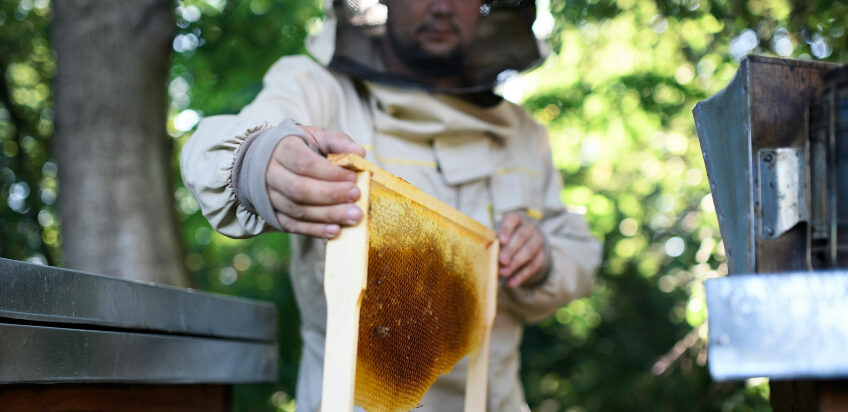Backyard beekeeping is becoming increasingly popular in New Jersey, with more residents embracing it as a hobby, a way to support local ecosystems, or even a source of income. While beekeeping offers numerous environmental and personal benefits, it also comes with legal responsibilities. New Jersey’s laws and regulations aim to balance the interests of beekeepers, neighbors, and public health. Understanding these legal implications is crucial for anyone looking to start or maintain a backyard apiary.
Registration Requirements for Beekeepers
In New Jersey, all beekeepers are required to register their hives with the New Jersey Department of Agriculture (NJDA) under the state’s Beekeeping Act. This law is designed to:
- Monitor and control diseases and pests that threaten bee populations.
- Maintain records of hive locations to ensure public safety.
Key Requirements:
- Registration must be renewed annually.
- A small fee may be required based on the number of hives.
- Failure to register can result in fines or legal action.
Zoning and Local Ordinances
While state law governs beekeeping practices, local municipalities may have additional zoning ordinances or restrictions. These rules can regulate:
- The number of hives allowed on a property.
- The minimum distance between hives and property lines or structures.
- Whether beekeeping is permitted in residential zones.
Tip:
Before starting your apiary, check with your local zoning office to ensure compliance with municipal laws.
Nuisance Laws and Neighbor Relations
Beekeeping can sometimes lead to disputes with neighbors, especially if they feel the bees pose a nuisance or safety risk. Under New Jersey law, bees themselves are not considered inherently dangerous, but poor hive management could lead to liability.
To Avoid Conflicts:
- Install hives away from property lines and high-traffic areas.
- Provide a water source to prevent bees from foraging in neighbors’ pools or birdbaths.
- Use barriers like fences or hedges to guide bees’ flight paths upward.
Legal Protections:
- Beekeepers who follow state regulations are generally protected from nuisance claims, provided their practices are reasonable and do not pose a hazard.
Liability and Insurance
Beekeepers may be held liable for injuries or damages caused by their bees if they fail to take reasonable precautions. Examples include:
- Swarms interfering with neighboring properties.
- Bee stings leading to allergic reactions in visitors or passersby.
Insurance Considerations:
- Check your homeowner’s insurance policy to see if it covers beekeeping-related liabilities.
- Consider additional liability insurance specifically for beekeeping to protect against potential claims.
Environmental and Agricultural Regulations
Beekeeping in New Jersey is also subject to environmental and agricultural laws, including:
- Pesticide Use: Beekeepers must adhere to regulations regarding pesticide application to protect bee health.
- Apiary Inspections: The NJDA may inspect hives for compliance and to prevent the spread of diseases like American foulbrood.
- Hive Transport: Moving hives across state lines requires permits to prevent the spread of pests and diseases.
Benefits of Compliance
Following New Jersey’s beekeeping laws not only ensures legal compliance but also helps:
- Protect bee populations essential for pollination and agriculture.
- Foster positive relationships with neighbors and local authorities.
- Contribute to sustainable environmental practices within your community.
Conclusion
Backyard beekeeping in New Jersey can be a rewarding and environmentally beneficial activity, but it requires careful attention to state and local laws. By registering your hives, complying with zoning regulations, and managing your bees responsibly, you can enjoy this hobby while avoiding legal pitfalls.
If you’re considering starting an apiary or need advice on an existing one, consulting with a legal professional familiar with agricultural and zoning laws can provide invaluable guidance. Protecting your rights and ensuring compliance will help you thrive as a beekeeper in New Jersey.
